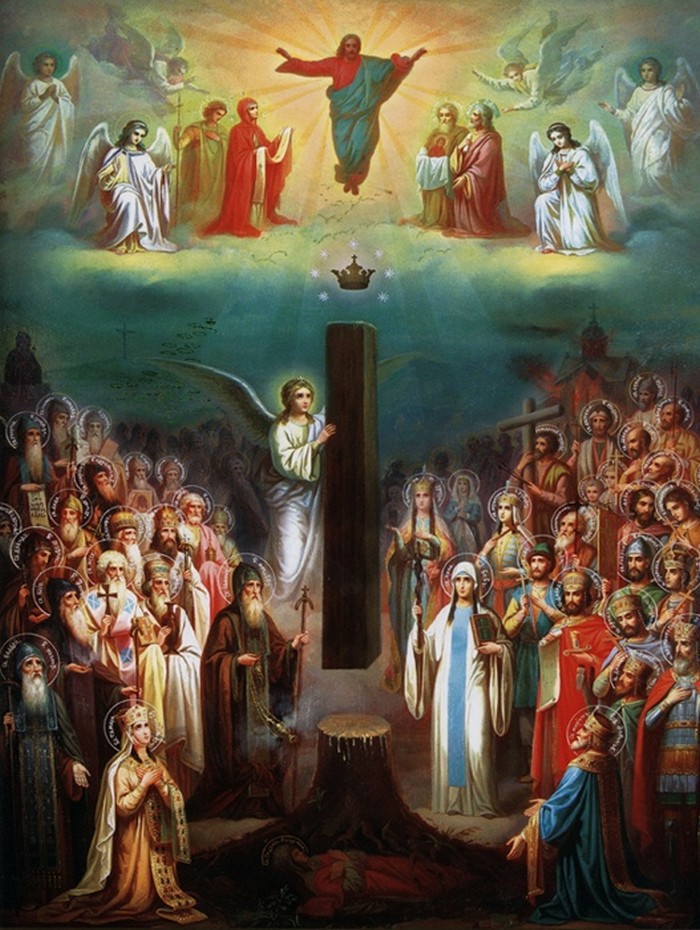![]() Recently, the website, “Ship of Fools,” reported the following list of support group meetings for the week at a Lutheran church in Ohio:
Recently, the website, “Ship of Fools,” reported the following list of support group meetings for the week at a Lutheran church in Ohio:
Mon – Alcoholics Anonymous
Tues – Abused Spouses
Wed – Eating Disorders
Thu – Say No to Drugs
Fri – Teen Suicide Watch
Sat – Soup Kitchen
At the Sunday service the sermon was “America’s Joyous Future.”
While America’s future may be joyous, its present seems decidedly troubled. There are not enough days in the week to treat all the disorders plaguing our society: internet gambling and pornography as well as school shootings, being only the most recent additions to our “culture.”
Many of these problems already existed prior to the 1960s, yet they did not seem as widespread or as troubling. People who grew up in the 1920s, 30s and 40s – despite living through the Great Depression and World War II – seemed better adjusted to life as they matured. Surviving these major world upheavals seems to have made people stronger and more at peace with their lives.
Writing in the January 3, 2011 New York Times. Benedict Carey summarizes a number of case studies of people experiencing hardship of one kind or another. He notes that people who have endured adversity often develop strengths to cope with future difficulties. Carey observes, “The findings suggest that mental toughness is something like physical strength: It cannot develop without exercise…”
Perhaps unconsciously this author is echoing St Basil the Great who observed, “For those who are well prepared, tribulations are like certain foods and exercises for athletes which lead the contestant on to the inheritance of glory.”
Keeping fit and trim may entail discomfort, but lead to victory.
St Paul endorses this dynamic and even applauds it in his own life in his Epistle to the Romans where he writes that we “… rejoice in hope of the glory of God. And not only that, but we also glory in tribulations, knowing that tribulation produces perseverance; and perseverance, character; and character, hope” (Romans 5:2-4). He rejoices in the afflictions he has endured for the Gospel because they have led him to a serene confidence in God.
Through Tribulation to Perseverance
St Paul discerns three movements in this journey toward serenity: the first being that “tribulation produces perseverance.” Paul – and many others since – endured beatings and imprisonment for Christ. They emerged with the conviction that God had been with them in the midst of their trials and that they had found in that realization the strength to continue serving Him.
Two millennia later an American Jesuit, Fr Walter Ciszek described his journey through twenty years as a prisoner in the Soviet Union: “Across that threshold I had been afraid to cross, things suddenly seemed so very simple. There was but a single vision, God, who was all in all; there was but one will that directed all things, God’s will. I had only to see it, to discern it in every circumstance in which I found myself, and let myself be ruled by it.
“God is in all things, sustains all things, directs all things. To discern this in every situation and circumstance, to see His will in all things, was to accept each circumstance and situation and let oneself be borne along in perfect confidence and trust. Nothing could separate me from Him, because He was in all things. No danger could threaten me, no fear could shake me, except the fear of losing sight of Him.
“The future, hidden as it was, was hidden in His will and therefore acceptable to me no matter what it might bring. The past, with all its failures, was not forgotten; it remained to remind me of the weakness of human nature and the folly of putting any faith in self. But it no longer depressed me. I looked no longer to self to guide me, relied on it no longer in any way, so it could not again fail me” (Ciszek, He Leadeth Me, pp 79-80).
Perseverance Produces Character
Character has been defined as the sum of those traits which make up an individual. People who are honest, principled, fair-minded and courageous are said to have a strong character. These qualities develop over time through, as St. Paul says, perseverance in the circumstances of one’s life despite the hardships or trials that may be involved.
The need for conscious cooperation with God has always been recognized as essential for developing a Christian personality. In the Second Epistle of St Peter we read the following prescription for developing such a character: “…add to your faith virtue, to virtue knowledge, to knowledge self-control, to self-control perseverance, to perseverance godliness, to godliness brotherly kindness, and to brotherly kindness love. For if these things are yours and abound, you will be neither barren nor unfruitful in the knowledge of our Lord Jesus Christ” (2 Peter 1:5-8).
The process by which we develop a Christian character is often not recognized in the wider society. It seems contrary to “normal” human growth because it involves rejection of some of our culture’s values. We are not urged to persevere in difficult relationships but to abandon them. We are encouraged to be “free” rather than self-controlled. Yet it is precisely these uncommon virtues that produce a Christ-like quality in us. In the troparion often sung for saintly bishops we say, “You acquired greatness through humility and spiritual wealth through poverty.” By persevering in what seemed to diminish them in the eyes of the world they achieved greatness in the sight of God.
Character Produces Hope
The final step in St Paul’s dynamic leads us to hope, but hope for what? We hope in the possibility of our ultimate and complete transfiguration, in body as well as in spirit, at the resurrection. Later in Romans we read “We also, who have the first fruits of the Spirit, even we ourselves groan within ourselves eagerly waiting for the adoption, the redemption of our body, for we were saved in this hope…” (Romans 8:23-24).
Commenting on this passage, Pope Benedict XVI wrote, “With this as our hope we can face our present: the present, even if it is arduous, can be lived and accepted if it leads towards a goal, if we can be sure of this goal, and if this goal is great enough to justify the effort of the journey” (Spe Salvi, 1).
We profess this hope every time we recite the Nicene Creed: “I await the resurrection of the dead and the life of the world to come.” We are sure in this hope based on the promise of God. May it remain with us throughout our lives, enlivening our faith and undergirding our sense of assurance in God’s love.
The Father is my hope,
the Son is my refuge,
the Holy Spirit is my protection.
All-holy Trinity, glory to You!
Prayer of St Joannikios
Source: Eparchy of Newton

